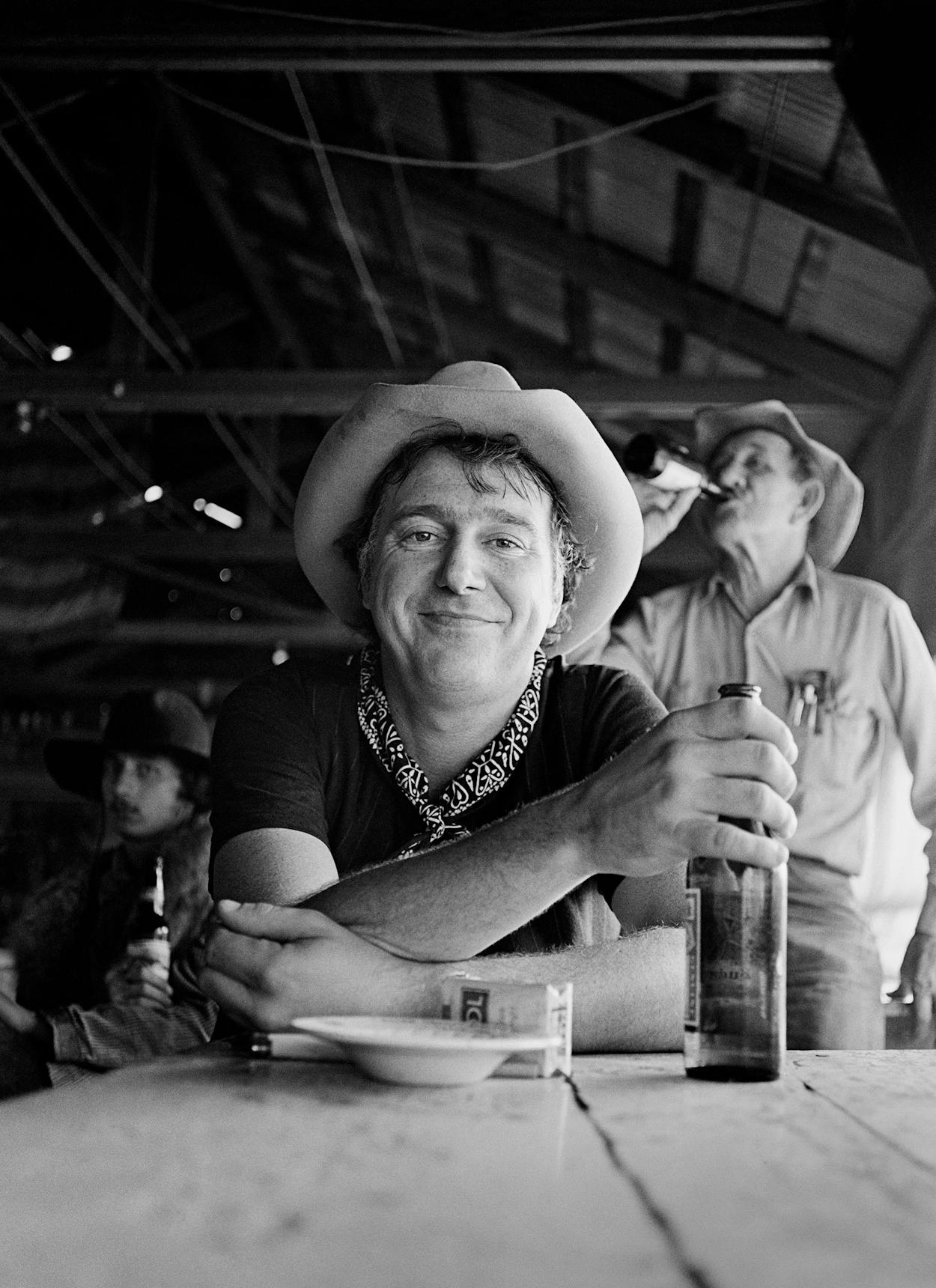Jerry Jeff Walker, the freewheeling singer and songwriter who became a country rock legend and helped pioneer Texas’s “cosmic cowboy” sound, died Friday after a prolonged battle with throat cancer. He was 78.
Walker was best known for “Mr. Bojangles,” which he penned after meeting a street performer in a New Orleans drunk tank in the sixties. The song was covered by scores of musicians, including Bob Dylan, Harry Belafonte, King Curtis, Dolly Parton, Nina Simone, and the Nitty Gritty Dirt Band, who had a Top 10 Billboard single with the tune in 1971. By one account—and apparently much to Walker’s chagrin—Sammy Davis Jr.’s version of the song supposedly reduced President Richard M. Nixon to tears.
Walker released nearly forty albums (including compilations) over his 51 years as a musician, and became both a mentor and inspiration to musicians such as Jimmy Buffett, Garth Brooks, Guy Clark, Pat Green, Robert Earl Keen Jr., Todd Snider, and Lucinda Williams, the latter of whom called him “an American treasure.”
Born Ronald Clyde Crosby on March 16, 1942, in Oneonta, New York, Walker was the only child of Mel and Alma. He once described his parents, who had him when they were nineteen, as “dance champions, traveling around, following music.” Walker’s maternal grandmother, Jessie Conrow, was his first musical influence, and one of his most enduring: “I never walk past the piano when I don’t sit down for at least a moment and see what it says,” she once told him.
In a 2017 interview with Live Nation Clubs and Theaters, Walker, who at one point told Texas Monthly he never “exactly” finished high school, said he was anxious to get out of the isolated, snow-packed small town an hour west of Albany. “I couldn’t wait to get going,” he said. “I always wondered what was going on out in the big world and I wanted to go south.”
He left Oneonta as a teenager, experimented with changing his name, and started rambling around the country, with notable stops in the Florida Keys and New Orleans (where he met and helped inspire a budding performer named Jimmy Buffett). He acquired his stage name, Jerry Jeff Walker, while living and performing in New Orleans in the mid-sixties. “I started as a happy-go-lucky street singer, and the joy of playing and paying my way with music has held me in good stead,” Walker wrote in his 1999 autobiography.
Austin’s rapidly evolving music scene of the early seventies—which, at the time, combined a singular blend of country, rock, folk, and blues—caught his attention, and he moved to the Texas capital. Those sounds eventually evolved into what became “progressive country,” or “cosmic cowboy.” Soon he became a linchpin of a singer-songwriter scene that also included Willie Nelson, Michael Martin Murphey, Doug Sahm, and Townes Van Zandt. A hard-living persona, often fueled by alcohol and drugs, contributed to Walker’s reputation for rowdy performances and offstage excess. Longtime friend, journalist, and author Bud Shrake once compared some of Walker’s shows to NASCAR events: “an act that was full of thrills and suspense.”
Walker didn’t care for stuffy recording studios, though. He preferred recording in dance halls, his home music room, at his vacation house in Belize, and on the soundstage of television’s Austin City Limits. He recorded one of his most popular albums, 1973’s Viva Terlingua! in the dance hall of the tiny Hill Country hamlet of Luckenbach, using hay bales for sound baffles. The session not only yielded some of his best-known recordings, including “Gettin’ By,” Guy Clark’s “Desperados Waiting for a Train” and Ray Wylie Hubbard’s “Up Against the Wall Redneck Mother,” but it also made the minuscule town famous. That album also saw the original incarnation of what would become Walker’s longtime group, the Lost Gonzo Band (later the Gonzo Compadres).
Though never a chart-topping artist himself, Walker possessed an expressive storyteller’s voice and penned a substantial body of memorable songs, including “Driftin’ Way of Life,” “The Wheel,” “Hill Country Rain,” and “That’s Why I Play.” Through adapting his sound, as well as nurturing talents including Pat Green and Jack Ingram, Walker transcended the cosmic cowboy era and evolved into a luminary of the contemporary Americana movement.
Long dismissive of major record label practices and politics, Walker and his wife Susan determined to chart their own career path. In the mid-eighties, they formed their own label, Tried & True Music, based at their home in Austin. Jerry Jeff was the talent, and Susan was the manager and booking agent. The boutique operation eventually handled all of Walker’s bookings, tour promotion, merchandise, travel, publishing, and publicity. Susan once joked, “Hell, I can lay by the pool and answer the phone as good as anyone at the William Morris [Agency].” Beginning in 1986 with releases on cassette tape and continuing into the age of digital downloads, the Walkers released seventeen albums, at first in conjunction with Rykodisc and then on their own label. Walker’s final release, It’s About Time, appeared in 2018.
The way that Walker managed his recordings, as well as his legacy, speaks to how he stayed faithful to the troubadour’s ethos of traveling and making his own music on his own terms, and reveled in what he called his “portable occupation.”
“I learned to love the craft of songwriting first,” he wrote in his memoir. “Afterwards, I’d found out that nobody else in the business knew any more than I did about making music. It was all up for grabs. … If you think you’ve got something special, the time will come when you have to stop being a nice guy and just go out and prove it.”
John T. Davis is a journalist and author in Austin. He spent much of the 1990s working as a publicist for Tried & True Music.
- More About:
- Music
- Jerry Jeff Walker
- Austin






